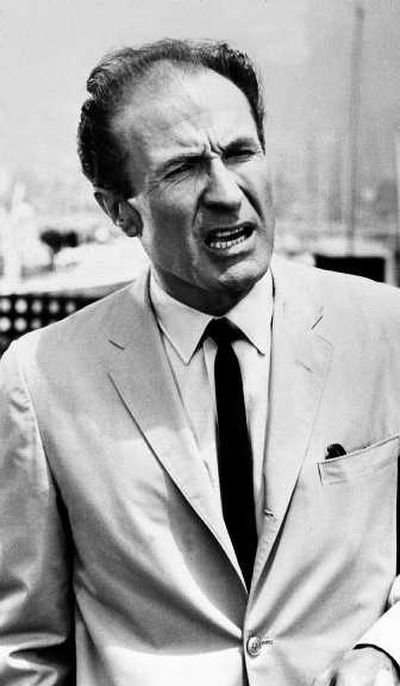In Passing

London
Barry Morse, ‘Fugitive’ co-star
Barry Morse, who played a detective pursuing the wrongly accused Dr. Richard Kimble in 1960s TV series “The Fugitive,” has died. He was 89.
Hayward Morse said his father died Feb. 2 at University College Hospital in London after a brief illness.
Born in London in 1918, Morse trained at London’s Royal Academy of Dramatic Art and appeared in British repertory and West End theaters before immigrating in 1951 to Canada, where he became a regular on radio and television.
In 1963, he was hired by producer Quinn Martin to play Lt. Philip Gerard on “The Fugitive.” The series ran for 120 episodes over four seasons, teasing audiences with the cat-and-mouse pursuit of Kimble, wrongly accused of murdering his wife, by the implacable Gerard.
“He thought it was a good show – well-filmed, well-directed and well-acted,” Hayward Morse said. “He had nothing disparaging to say about ‘The Fugitive.’ “
In 1966, he was named artistic director of the Shaw theater festival in Niagara-on-the-Lake, Ontario, rescuing it from financial crisis. Morse was a lifelong devotee of playwright George Bernard Shaw, and his son said reviving the festival, which produces the works of Shaw and his contemporaries, was his proudest achievement.
New York
Joshua Lederberg, Nobel winner
Joshua Lederberg, who won a Nobel Prize for discovering that bacteria could have sex, thereby laying the foundation for the modern sciences of genetics and biotechnology, died of pneumonia Feb. 2 in New York. He was 82.
Lederberg’s pioneering work while he was still in graduate school made him one of the first researchers to manipulate genes in a living organism and opened the door to an understanding of how bacteria evolved and the mechanisms by which they develop and transfer resistance to antibiotics.
It also set the stage for a long career in space biology and artificial intelligence, as well as a four-decade career on government advisory commissions focused on health policy, national security and arms control.
As president of Rockefeller University from 1978 to 1990, he was instrumental in renovating many of the institution’s research facilities and the construction of new ones.